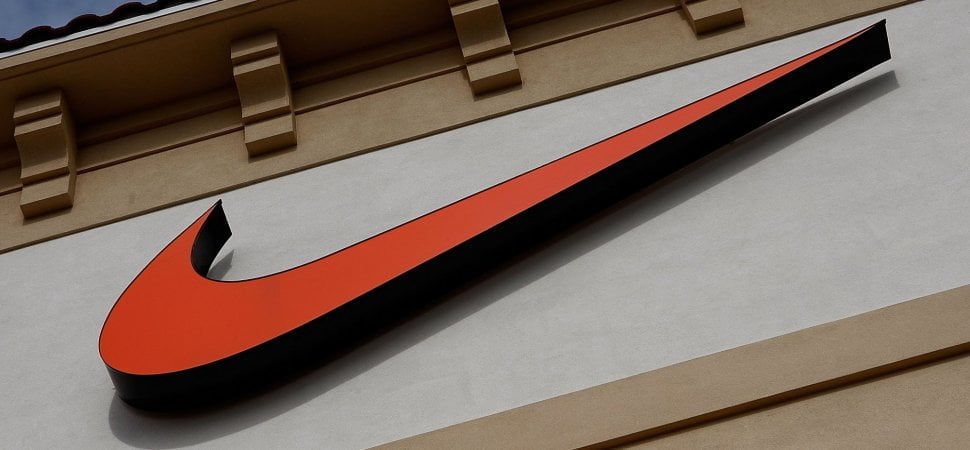
On March 7th, to much brouhaha, Nike became the first major brand to launch a sporting hijab for Muslim women athletes. It caused a stir. But should it have?
Nike founders Phil Knight and Bill Bowerman first named their athletic startup Blue Ribbon Sports. Blue Ribbon is a good name for a running shoe company. After all, back in the day the winner of most races received just that, a blue ribbon. Solid branding choice.
Yet, on May 30, 1971, they changed the name to Nike. In Greek Mythology, Nike was the goddess of speed, strength, and victory. Also known as the Winged Goddess, she was noted for her faculty for flight.
The name Nike was bold. Unconventional. Perhaps risky. Especially in a time when women’s sports were not accepted as even sporting endeavours by many. And while the gap to men’s sports certainly hasn’t closed completely, the last 50 years have seen progress down that road.
Still the early 70s were a different time for women’s sports. Nike’s naming change suggests an early cultural marker. As if Nike proclaimed “The female athlete matters to us.”
The Nike Pro Hijab is adorned with the signature swoosh just above the left ear. Nike took no shortcuts to produce a product designed for performance as well as the sporting fashion Nike designers aspire to. In development for more than a year with input from top female Muslim athletes, the Pro Hijab is made of a breathable polyester mesh, in line with Nike’s other high performance gear.
Nike announced the launch the day before International Women’s Day. Zahra Lari, an up-and-coming figure skater from the United Arab Emirates with Olympic aspirations, became the face of the campaign.
The launch did not go off without a hitch. Nike received criticism from many angles. Some women’s rights groups denounced the move as a symbol of oppression.
Some Muslim factions criticized Nike for being late to the game. The anti-Muslim contingent responded as expected, with a focus on a “supporter of Islamic Extremist” label.
Social media became the backdrop for the dialogue. The hashtag #boycottNike made the rounds in the days and weeks after the launch.
Nike did respond, doing just enough to avoid looking tone deaf. They certainly didn’t overplay it or look defensive. The one-off media plant or mid-level talking head was about all they deployed. You couldn’t help but wonder if there was a longer game being played.
“The Nike Pro Hijab has been a year in the making, but its impetus can be traced much further back to Nike’s founding mission, to serve athletes, with the signature addendum: If you have a body, you’re an athlete,” stated the Nike website.
Nike isn’t a stranger to bold moves as evidenced by their acquisitions of Cole Haan, Converse (Chuck Taylors!), Umbro and Hurley. They’re also not scared to push the envelope with image shifting campaigns like “Just Do It” or their use of Bo Jackson in the adventurous “Bo Knows” spots.
This recent tactic, however, seems to carry an extra element. Nike’s pro forma surely doesn’t account for the impact of the Pro Hijab sales as anything more than marginal against its $34 billion top line.
Changes in the wants of consumers happen at a quick pace, sometimes overnight. Shifts in social movements are glacial in comparison. Tomorrow, a new Nike shoe might show up on LeBron’s feet that every kid in America will want. Compare this to breaking the color barrier in baseball or the emergence of women’s professional sports leagues in soccer or basketball. These movements have played out over decades, most still in flight.
Like many of these movements, normalizing the rights of a Muslim woman could also play out over decades.
If so, Nike’s longer game just might carry a bigger vision.
Perhaps Nike envisions the day when a Muslim woman stands on an Olympic podium wearing a Pro Hijab. Perhaps they also envision the day when a Muslim woman chooses to stand on an Olympic podium without one.
Is that their end game? It’s tough to know for sure.
As big picture progress happens, there’s usually a sequencing. Small almost unnoticeable advances over time move mountains, carve canyons, and change hearts and minds.
Perhaps for Nike, this race is a marathon, not a sprint. Nearly a half century after its prophetic branding shift, perhaps Nike has once again proclaimed, “The female athlete matters to us.”
